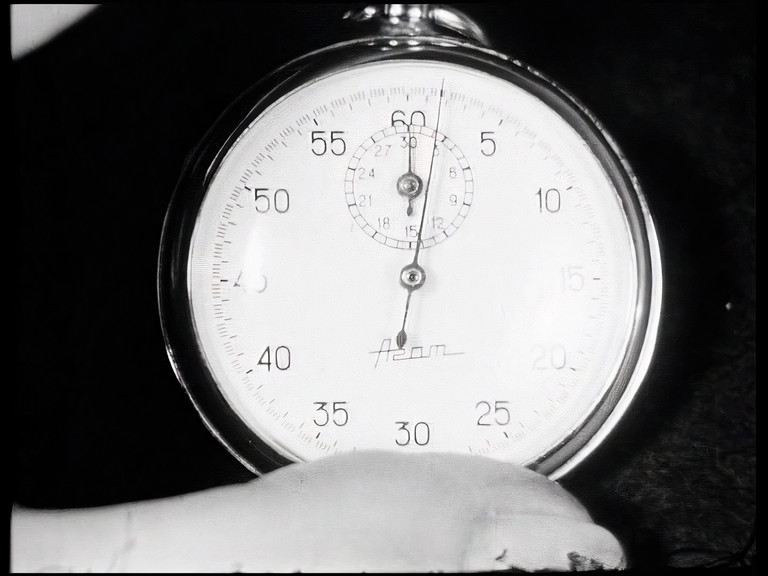| June 2, 2022, 7pm |
| e-flux Screening Room 172 Classon Avenue Brooklyn, NY 11205 USA |
| www.e-flux.com Get tickets / Facebook / Instagram / Twitter |
| Please join us at e-flux Screening Room on Thursday, June 2 for a screening and discussion of films and videos by Natalia LL, curated by Agnieszka Rayzacher. The screening will be followed by a conversation betweenRayzacher, Izabela Gola, and Lukas Brasiskis. Natalia LL, a pioneer of avant-garde feminist art in Poland, is known worldwide for her witty critique of consumer society, investigations of sexuality and gender, and systematic experimentation with the laws of probability. Investigating aesthetic and erotic features of consumption, her works have a captivating yet perverse allure. Natalia LL’s film work is closely related to her artistic practice, spanning mainly photography and performance art. Her early pieces from 1970, Permanent Measurement of Time and Permanent Measurement of Every 1 km of the E22 Motorway are conceptual meditations on time and space—topics that became vital for the artist’s work in conceptual photography at the time. Marking the next major stage of her practice was Consumer Art, a performance-for-camera series developed from 1972 to 1975. A subversive take on consumerism in the light of the shortage of goods in communist Poland and the commodification of women’s bodies, the piece garnered Natalia LL popularity among second-wave feminist theorists and curators. Impressions from 1973 also addresses the experience of one’s own body, joy, and bliss on one’s own terms, and Artificial Reality, created two years later, is an interesting example of how Natalia LL introduced sensuality and subjectivism into the field of conceptual and experimental art. Toward the end of the 1970s, the artist’s work began to concentrate on mystical and spiritual motifs, portraying herself and her body as an element of the cosmos. Performances from that period, which teh artist called “seances,” are more autonomous and frequently had a less direct relationship to the camera, although the awareness and necessity of film documentation remained vital for the artist. The first of a series of such seances, titled Dreaming, was held in 1978, and its film recording, Pyramid, was made in 1980. These actions took various forms: Natalia LL would sleep in the presence of viewers or in front of only the camera, or else she would photograph sleeping people. Around the same time, she created the piece Points of Support, set in a meadow in the Pieniny National Park, where the artist, nude, performed gymnastic exercises combined with a choreography. Each posture she adopted corresponded to a stellar constellation, thus building something of a bridge between woman and the cosmos. The same tendency, marked by an interest in ecology and natural energy, is also represented by two later video pieces: Voracious Cats (1994) and Menego (1997). Of note is Natalia LL’s private revolution, taking place since the mid-1980s until today, which concerns the artist’s attitude to her own body and the passage of time. Her transformation is represented in photographic series and video works, such as Brunhild’s Dreams (1994), among other pieces. A forerunner of feminism in Polish art, Natalia LL has devoted uncompromising works to the body and sexuality, including in the context of aging and ageism, a topic almost absent from global art and public space, and seldom addressed by feminist theorists. The screening is part of Revisiting Feminist Moving Image, a bi-monthly series at e-flux Screening Room aimed at revisiting the origins, contexts, developments, and impact of feminist video art and experimental cinema around the world from the 1960s through the present. The event is organized in partnership with lokal_30, Warsaw and the Polish Cultural Institute New York. Tickets for the program are available here. Revisiting Feminist Moving Image is a screening series at e-flux Screening Room that revisits the origins, contexts, and developments of feminist video art and experimental cinema from the 1960s to the 2000s. The screenings feature a number of internationally renowned feminist experimental filmmakers and video artists. Aware of the different pace of development of feminist discourse in various parts of the world, the screenings accompanied by conversations with moving-image artists, art historians, and curators aim to inspire dialogue between various movements and waves of feminist moving-image art and to spark discussions on (g)local and transnational practices. For more information contact program@e-flux.com. |
NATALIA LL at e-flux Screening Room in NYC


